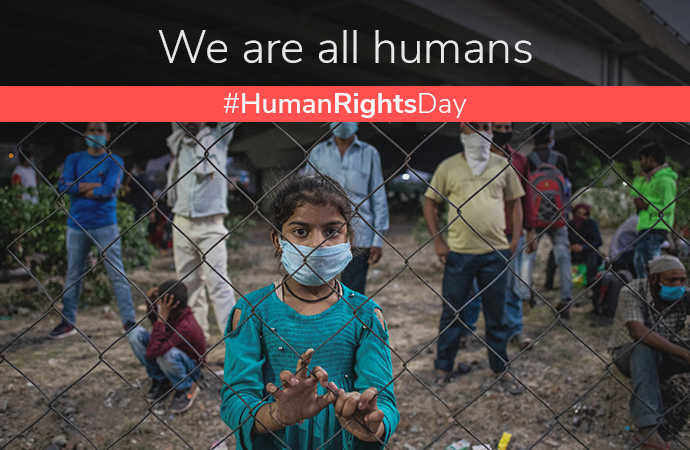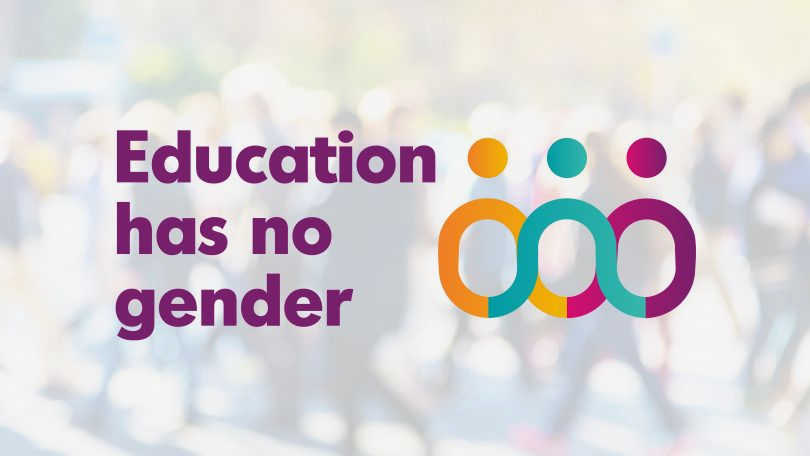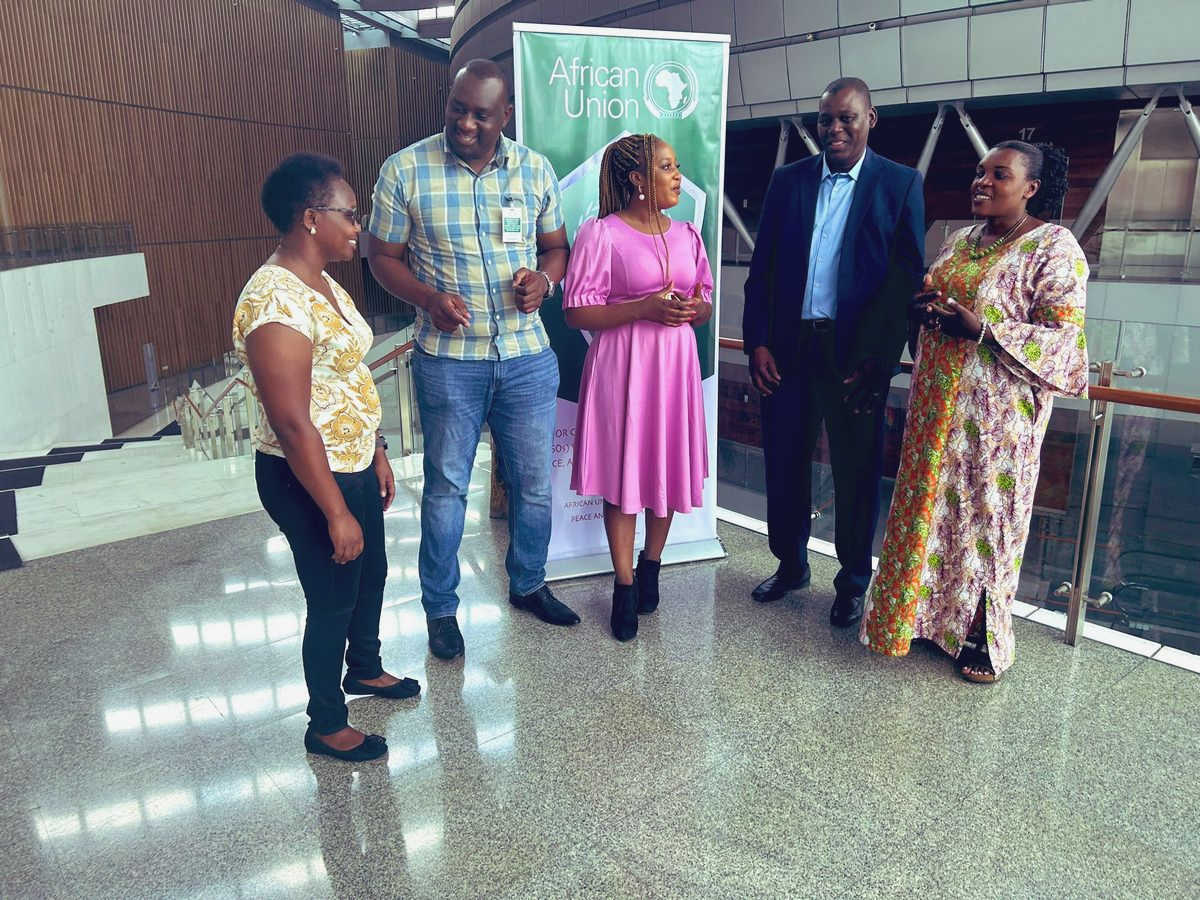Equality is a fundamental principle that lies at the heart of any fair and just society. It is the principle that all individuals should be treated with dignity and respect, and have equal access to opportunities and resources. Yet, achieving equality is an ongoing challenge in many parts of the world, where discrimination and inequality persist.
Civil society plays a crucial role in championing equality and promoting equal rights. Civil society refers to the collective action of individuals and organizations outside of the government and business sectors, who work for the betterment of society. These organizations, such as non-governmental organizations (NGOs), community-based organizations, and advocacy groups, often serve as a voice for marginalized groups and advocate for their rights.
One of the key roles of civil society in promoting equal rights is raising awareness about the importance of equality and the various forms of discrimination that exist. Through research, campaigns, and public education, civil society organizations shine a spotlight on issues such as gender inequality, racial discrimination, homophobia, and ableism. By bringing these issues to the forefront of public consciousness, civil society creates a sense of urgency and fosters dialogue and action towards achieving equal rights.
Another important role of civil society is holding governments and other institutions accountable for their actions, or lack thereof, in promoting equality. Civil society organizations monitor and evaluate policies and practices, highlight instances of discrimination or inequality, and advocate for policy changes. They also provide support and resources for individuals who have experienced discrimination, ensuring that their voices are heard and their rights are protected.
The Importance of Championing Equality
Equality is a fundamental principle that should be championed by civil society. Ensuring equal rights and opportunities for all individuals, regardless of their gender, race, ethnicity, or social background, is crucial for creating a fair and just society.

Championing equality helps to dismantle systemic discrimination and oppression. By advocating for equal treatment and challenging societal norms that perpetuate inequality, civil society organizations play a vital role in promoting a more inclusive and tolerant society.
Additionally, championing equality fosters social cohesion and harmony. When everyone has an equal chance to succeed and thrive, it creates a sense of unity and shared purpose within a community. This can lead to stronger relationships, increased trust, and a more peaceful and prosperous society.
Furthermore, championing equality is essential for economic growth and development. When individuals are denied equal rights and opportunities, it hinders their ability to contribute fully to society. By removing barriers and promoting equal access to education, employment, and resources, civil society organizations can help unlock the potential of marginalized groups, leading to increased productivity and innovation.
In conclusion, championing equality is not only a moral imperative but also a means to build a better society. By advocating for equal rights and opportunities, civil society organizations can create a more inclusive, cohesive, and prosperous society for all.
Promoting Equal Rights: A Civil Society Responsibility
1. Advocacy and Awareness
Civil society has a crucial role to play in promoting equal rights by advocating for policy change and raising awareness about ongoing inequalities. Through research, lobbying, and public campaigns, civil society organizations can highlight systemic discrimination and mobilize public support for equal rights. By engaging with different stakeholders, including governments, corporations, and the general public, civil society can help shape public opinion and foster a culture of inclusivity and equality.
2. Capacity Building and Empowerment
Civil society organizations can empower marginalized groups by providing capacity building and training programs. These initiatives can equip individuals with the skills and knowledge needed to advocate for their rights and challenge oppressive systems. By empowering marginalized communities, civil society can help create equal opportunities for all and break cycles of discrimination and marginalization.
3. Collaboration and Partnership
Collaboration between civil society organizations, as well as partnerships with other stakeholders, is essential in promoting equal rights. By working together, organizations can leverage their resources, expertise, and networks to achieve greater impact. Collaborative efforts can include joint advocacy campaigns, knowledge sharing, and coordinated action to address specific inequalities. Through these partnerships, civil society can amplify its voice and promote a more comprehensive approach to equal rights.
4. Monitoring and Accountability
Civil society plays a crucial role in monitoring and holding governments accountable for ensuring equal rights and non-discrimination. Through research, data collection, and human rights monitoring, civil society organizations can identify and document instances of inequality and discrimination. This information can be used to advocate for policy changes, pursue legal action, and influence public opinion. By monitoring progress and highlighting gaps in implementation, civil society can push formore effective policies and ensure that commitments to equal rights are upheld.
5. Grassroots Mobilization
Civil society can mobilize communities at the grassroots level to promote equal rights and challenge discriminatory practices. Through community organizing, awareness campaigns, and mobilization efforts, civil society organizations can empower individuals to take collective action. Grassroots mobilization can lead to real change by putting pressure on decision-makers, fostering a sense of solidarity, and amplifying the voices of marginalized groups.
Empowering Marginalized Communities through Civil Society
1. Advocacy and Awareness
Civil society plays a crucial role in empowering marginalized communities by advocating for their rights and raising awareness about the discrimination they face. Non-governmental organizations (NGOs) and community-based groups frequently work towards educating the broader public about the unique needs and challenges faced by marginalized communities.
Through targeted campaigns, workshops, and public events, civil society organizations aim to challenge biases and stereotypes, promote empathy and understanding, and foster a more inclusive society. By amplifying the voices of the marginalized, they help create a platform for dialogue and highlight the importance of equal rights for all.
2. Capacity Building and Skills Development
In order to empower marginalized communities, civil society organizations often focus on capacity building and skills development programs. These initiatives provide community members with the necessary tools and knowledge to enhance their economic, social, and political participation.
Civil society organizations may offer vocational training, entrepreneurship programs, and leadership development courses. By equipping marginalized individuals with relevant skills and qualifications, these initiatives aim to break the cycle of poverty, reduce unemployment rates, and foster self-sufficiency.
3. Access to Legal Services
Civil society organizations also work to ensure equal access to justice for marginalized communities. They provide legal aid services to individuals who may face barriers in accessing the legal system, such as language barriers, financial constraints, or lack of awareness of their rights.

This includes offering free legal advice, representation in court, and assistance with navigating complex legal processes. By empowering individuals with the legal knowledge and support they need, civil society organizations help marginalized communities to assert their rights and challenge systemic discrimination.
4. Collaboration and Networking
Civil society organizations often facilitate collaboration and networking among marginalized communities, enabling them to connect with each other, share experiences, and collectively address their common challenges.
By creating platforms for dialogue and cooperation, these organizations help build solidarity and collective power within marginalized communities. This can lead to the formation of grassroots movements, community-led initiatives, and advocacy campaigns that can drive meaningful change.
In conclusion, civil society plays a vital role in empowering marginalized communities by advocating for their rights, providing skills development, offering legal services, and fostering collaboration. These efforts are essential for promoting equal rights and creating a more inclusive society where all individuals can thrive and participate fully.
Civil Society Organizations: Advocates for Equality
Civil society organizations play a crucial role in promoting equal rights and advocating for equality in various aspects of society. These organizations are independent, non-governmental entities that exist to serve the interests of the public and work towards creating a more just and equitable society.
One of the key functions of civil society organizations is to raise awareness about the importance of equality and address issues of discrimination. Through educational campaigns, workshops, and public events, these organizations strive to promote a better understanding of equality and challenge societal norms and biases that perpetuate inequality.
Civil society organizations also actively engage in advocacy efforts, lobbying policymakers and advocating for legal reforms that protect and uphold equal rights. Through policy research and analysis, these organizations provide evidence-based recommendations that can help shape legislation and government policies to ensure equal treatment and opportunities for all individuals.
In addition, civil society organizations often provide direct support and assistance to marginalized and vulnerable communities. They offer services such as legal aid, counseling, and advocacy to help individuals facing discrimination or inequality navigate complex systems and access their rights.
Furthermore, civil society organizations play a crucial role in monitoring and holding governments accountable for their commitment to equality. By conducting independent research, documenting human rights violations, and publishing reports, these organizations shine a light on issues that may otherwise go unnoticed and work towards bringing about systemic change.
In conclusion, civil society organizations are powerful advocates for equality and play a vital role in promoting and protecting the rights of all individuals. Their work is essential in challenging discriminatory practices, influencing policy decisions, and creating a more inclusive society.
The Role of Civil Society in Addressing Discrimination
Raising Awareness
Civil society plays a crucial role in addressing discrimination by raising awareness about the various forms of discrimination that exist in society. Through public campaigns, educational programs, and community outreach initiatives, civil society organizations can inform the public about the impact of discrimination on individuals and communities. By promoting a greater understanding of discrimination, civil society can challenge societal norms and stereotypes, leading to a more inclusive and equitable society.
Providing Support and Advocacy
Civil society organizations also provide vital support and advocacy for individuals and communities who are affected by discrimination. They offer counseling services, legal assistance, and resources to help those who have experienced discrimination to navigate the legal system and access their rights. Additionally, civil society organizations advocate for policy changes and reforms that address systemic discrimination and promote equal rights. They work to ensure that the voices of those affected by discrimination are heard and that their rights are protected.
Building Alliances
One of the key roles of civil society in addressing discrimination is building alliances with other organizations and stakeholders. By collaborating with government agencies, non-governmental organizations, and businesses, civil society organizations can leverage their collective expertise and resources to create a united front against discrimination. These alliances can lead to collaborative initiatives, such as awareness campaigns, training programs, and policy development, that have a greater impact in challenging and addressing discrimination.
Monitoring and Reporting
Civil society organizations also play a crucial role in monitoring and reporting instances of discrimination. They collect data, conduct research, and document cases of discrimination, shining a light on the prevalence and impact of discriminatory practices. This evidence-based approach helps to hold accountable those responsible for discriminatory actions and policies. By monitoring and reporting on discrimination, civil society organizations ensure that it remains a top priority on the societal and political agendas, leading to meaningful change and progress.
Educating and Empowering
In addition, civil society organizations play a significant role in educating and empowering individuals and communities to tackle discrimination. Through workshops, trainings, and capacity building programs, they provide individuals with the knowledge and skills needed to challenge discriminatory practices and advocate for equal rights. By empowering individuals, civil society organizations contribute to the creation of a society that is more inclusive, just, and respectful of diversity.
Collaborative Efforts: Civil Society and Government Partnership for Equality
Achieving Equality Through Collaboration
Civil society and government collaboration plays a vital role in promoting equality and ensuring equal rights for all individuals. By working together, these two sectors can address systemic inequalities and create sustainable solutions for a more inclusive society.
Through collaborative efforts, civil society organizations and government agencies can share resources, expertise, and knowledge to develop and implement effective policies and programs. This partnership allows for a more comprehensive approach to addressing the barriers that prevent marginalized groups from accessing their rights.
Strengthening Accountability and Transparency
A partnership between civil society and government also helps to strengthen accountability and transparency in the promotion of equal rights. Civil society organizations play a crucial role in monitoring government actions and policies, ensuring that they are in line with the principles of equality and human rights.
With their independent perspective, civil society organizations can provide valuable feedback and hold governments accountable for any discriminatory practices or policies. This collaboration fosters a culture of transparency and openness, which is essential for the advancement of equal rights.
Amplifying Voices and Creating Change
By joining forces, civil society and government can amplify the voices of marginalized communities and advocate for their rights. Civil society organizations have a unique understanding of the needs and concerns of these communities, drawing on their grassroots networks and direct engagement.
Through partnerships with government, civil society organizations can leverage their expertise to influence policy development and implementation. This collaborative approach ensures that the voices of marginalized groups are heard and their rights are protected, leading to meaningful change and progress towards equality.
Harnessing Diverse Perspectives
A partnership between civil society and government allows for the harnessing of diverse perspectives and experiences in the pursuit of equality. Civil society organizations represent a wide range of stakeholders, including women, youth, LGBTQ+ individuals, and ethnic and religious minorities.
By working together, civil society and government can incorporate these diverse perspectives into policy decisions and program implementation, ensuring that the needs of all individuals are taken into account. This collaborative effort promotes a more inclusive society where everyone has equal opportunities and rights.
In conclusion, collaborative efforts between civil society and government are essential for championing equality and promoting equal rights. This partnership allows for a comprehensive approach to addressing systemic inequalities, strengthening accountability, amplifying marginalized voices, and harnessing diverse perspectives. By working together, civil society and government can create lasting change and build a more inclusive and equal society for all.

Civil Society Initiatives: Breaking Barriers towards Equal Rights
Civil society initiatives play a crucial role in breaking barriers and promoting equal rights in society. These initiatives are driven by passionate individuals and organizations that aim to create a more inclusive and equitable society for all.
Education and awareness campaigns are one of the key strategies employed by civil society initiatives to break down barriers towards equal rights. These campaigns seek to educate the public about various forms of inequality and discrimination, and raise awareness about the importance of equal rights for everyone. Through workshops, seminars, and public events, these initiatives aim to create a more informed and empathetic society.
Advocacy and lobbying efforts are also vital in breaking barriers towards equal rights. Civil society initiatives often work closely with policymakers and lawmakers to advocate for legislative changes that promote equal rights. They engage in lobbying efforts to ensure that laws and policies are inclusive and protect the rights of marginalized communities.
Capacity building and empowerment programs are another important aspect of civil society initiatives. These programs aim to build the capacity of marginalized groups, providing them with the knowledge, skills, and resources to advocate for their own rights. By empowering individuals and communities, these initiatives help them overcome barriers and achieve equal rights.
Collaboration and networking is key to the success of civil society initiatives. These initiatives often collaborate with other organizations, both locally and internationally, to share knowledge, resources, and strategies for promoting equal rights. By working together, they can amplify their impact and create meaningful change.
Monitoring and reporting is also an important component of civil society initiatives. They hold governments and institutions accountable by monitoring and reporting on instances of discrimination, inequality, and human rights abuses. By shining a light on these issues, they create public pressure for change and contribute to the realization of equal rights for all.
Overall, civil society initiatives are instrumental in breaking barriers towards equal rights. Through education, advocacy, empowerment, collaboration, and monitoring, these initiatives strive to create a more just and inclusive society where everyone can enjoy their fundamental rights and freedoms.
Grassroots Movements: Civil Society’s Contribution to Equality
Civil society plays a crucial role in promoting equal rights and championing equality in society. One of the key ways in which civil society contributes to this important cause is through grassroots movements. Grassroots movements are locally organized efforts that advocate for social change and equality on a community level.
These movements are typically led by individuals and community organizations who are directly affected by inequalities and are passionate about addressing them. Grassroots movements often tackle a wide range of issues, such as gender equality, racial justice, LGBTQ+ rights, and disability rights, among others.
One way in which grassroots movements contribute to equality is by raising awareness about various forms of discrimination and inequality. Through public demonstrations, campaigns, and community events, these movements shed light on the issues and challenges faced by marginalized groups. By amplifying voices that are often overlooked or unheard, grassroots movements draw attention to the need for change and promote dialogue and understanding within society.
Moreover, grassroots movements also play a vital role in advocating for policy changes and legislative reforms. By organizing petitions, lobbying policymakers, and engaging in advocacy efforts, these movements push for legal frameworks that promote equal rights and protect marginalized communities. They work towards creating an inclusive and equitable society where everyone has access to the same opportunities and is treated with dignity and respect.
Furthermore, grassroots movements serve as platforms for community organizing and empowerment. They provide spaces for individuals to come together, share their experiences, and collectively work towards common goals. These movements foster solidarity and create a sense of belonging, allowing people to build support networks and find strength in numbers.

In conclusion, grassroots movements are a powerful force within civil society that contribute significantly to the promotion of equality. Through their efforts, these movements raise awareness, advocate for policy changes, and empower communities to strive for a society where everyone is treated equally and has equal opportunities to thrive.
Civil Society’s Impact on Policy-making for Equality
Civil society plays a crucial role in shaping policies that promote equality. Through their advocacy and activism, civil society organizations are able to influence the policy-making process and ensure that the needs and rights of marginalized communities are taken into consideration.
One way in which civil society contributes to policy-making for equality is by conducting research and collecting data on issues related to discrimination and inequality. By providing policymakers with evidence-based information, civil society organizations are able to highlight the extent of the problem and the impact it has on individuals and communities.
Moreover, civil society organizations often act as a bridge between the government and marginalized groups, representing their interests and making sure that their voices are heard. They organize consultations, meetings, and forums where affected individuals can share their experiences and propose solutions.
Civil society’s impact on policy-making for equality is also evident through their mobilization efforts. By raising awareness and engaging the public, civil society organizations can generate support for policy changes and create a movement for equal rights. This includes organizing protests, campaigns, and public events to draw attention to discriminatory practices and demand accountability from policymakers.
Additionally, civil society organizations have the ability to monitor the implementation of policies and hold governments accountable for their commitments. Through monitoring and evaluation, they can ensure that policies aimed at promoting equality are effectively enforced and that the necessary resources are allocated.
In conclusion, civil society plays a vital role in policy-making for equality. Their research, advocacy, mobilization, and monitoring efforts contribute to creating policies that promote equal rights and opportunities for all members of society. It is through the active participation of civil society organizations that progress towards a more equitable and inclusive society can be achieved.
Promoting Inclusivity: Civil Society’s Efforts in Creating Equal Opportunities
Creating Awareness and Advocacy
Civil society plays a crucial role in promoting inclusivity by creating awareness and advocating for equal opportunities. Through campaigns, public events, and social media platforms, civil society organizations raise awareness about the importance of inclusivity and the need to ensure equal rights for all individuals. They engage with the public, sharing personal stories, organizing workshops, and urging policymakers to take action to address discrimination and create a more inclusive society.
Providing Support and Resources
Civil society organizations also play a vital role in providing support and resources to marginalized groups. They offer assistance such as legal advice, counseling services, and educational programs to help individuals overcome barriers and access equal opportunities. By providing these resources, civil society organizations empower marginalized individuals and equip them with the tools they need to navigate and succeed in a society that promotes inclusivity.
Collaborating with Stakeholders
Civil society organizations actively collaborate with various stakeholders, including government agencies, businesses, and other non-profit organizations, to create equal opportunities. They work together to develop inclusive policies, implement diversity and inclusion programs, and address systemic barriers that hinder equal access to education, employment, and healthcare. Through collaboration, civil society organizations and their partners can combine their efforts and expertise to create lasting change and ensure equal opportunities for all.
- Empowering Marginalized Communities
- Non-discriminatory Hiring Practices
- Educational Outreach Programs
- Policy Advocacy
| Organizing Workshops | Increased awareness and understanding of inclusivity issues |
| Providing legal aid services | Empowerment of marginalized individuals through access to justice |
| Advocating for policy changes | Implementation of more inclusive policies |
Future of Civil Society in Championing Equality: Challenges and Opportunities
1. Expanding Awareness and Advocacy
Civil society organizations play a crucial role in raising awareness about the importance of equality and advocating for equal rights. In the future, these organizations need to continue to expand their reach and impact, using various tools and platforms to engage with a wider audience. This could include leveraging social media, organizing events and campaigns, and collaborating with other organizations to amplify their message.
2. Strengthening Collaboration and Partnerships
In order to effectively champion equality, civil society organizations need to strengthen their collaboration and partnerships, both within the sector and with other stakeholders. By working together, these organizations can pool their resources and expertise to create a stronger and more unified voice for equal rights. This includes collaborating with governments, businesses, and other actors to develop and implement policies and initiatives that promote equality.
3. Addressing Intersectionality
One of the challenges facing civil society in the future is the need to address intersectionality in their efforts to champion equality. Intersectionality recognizes that individuals may face multiple forms of discrimination and oppression based on their intersecting identities, such as race, gender, sexuality, and disability. Civil society organizations need to ensure that their advocacy efforts are inclusive and consider the unique experiences and needs of different marginalized groups.
4. Mobilizing Resources for Sustainable Impact
To have a sustainable impact on promoting equality, civil society organizations need to mobilize resources effectively. This includes securing funding from various sources, such as grants, donations, and partnerships with private sector entities. Additionally, organizations should prioritize building capacity and empowering their staff and volunteers through training and development programs, ensuring the long-term viability of their work.
5. Leveraging Technology for Innovation
Advancements in technology provide civil society organizations with exciting opportunities to innovate and enhance their efforts in championing equality. By embracing technology, organizations can leverage data analytics to better understand the key challenges and trends related to equality. They can also use technology to reach a wider audience, facilitate online participation, and promote collaboration and knowledge sharing among stakeholders.

In conclusion, the future of civil society in championing equality holds both challenges and opportunities. By expanding awareness and advocacy, strengthening collaboration and partnerships, addressing intersectionality, mobilizing resources for sustainable impact, and leveraging technology for innovation, civil society organizations can continue to play a crucial role in promoting equal rights and shaping a more inclusive and equitable future.





